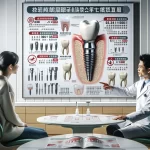Your smile is one of your most valuable assets, and maintaining good oral health is essential for keeping that radiant grin intact. Neglecting your teeth and gums can lead to various dental issues, including cavities, gum disease, bad breath, and even tooth loss. Fortunately, by following some straightforward yet effective oral care tips, you can prevent these problems and ensure your pearly whites shine bright for years to come.
In this comprehensive guide, we’ll explore the most effective strategies for optimal oral hygiene, supported by expert advice and the latest research. Get ready to unlock the secrets to a lifetime of healthy smiles!
The Importance of Oral Health
Understanding the significance of oral health is crucial. Your mouth serves as a gateway to your overall well-being, and poor dental hygiene can have consequences that extend beyond just your teeth and gums.
Research has shown that oral health issues, such as gum disease, are linked to an increased risk of systemic conditions like heart disease, stroke, diabetes, and even Alzheimer’s disease. By prioritizing your oral hygiene, you’re not only protecting your smile but also safeguarding your overall health. For more information on the connection between oral health and systemic diseases, visit the American Dental Association.
Practical Oral Health Care Tips
1. Brush Twice Daily (and Properly!)
Brushing your teeth is the cornerstone of good oral hygiene. It’s not just about how often you brush; proper technique matters too.
- Frequency: Brush twice a day for at least two minutes each time.
- Tools: Use a soft-bristled toothbrush and fluoride toothpaste.
- Technique: Employ gentle circular motions at a 45-degree angle towards the gumline to effectively remove plaque and food particles.
- Bonus Tip: Don’t forget to brush your tongue to eliminate bacteria and freshen your breath!
For guidance on proper brushing techniques, check out resources from the Centers for Disease Control and Prevention (CDC).
2. Floss Regularly
Flossing is often overlooked but is essential for maintaining good oral health.
- Frequency: Floss once daily to remove plaque and food particles that your toothbrush can’t reach.
- Pro Tip: Flossing before brushing can help dislodge particles, making them easier to brush away.
For tips on effective flossing techniques, refer to the American Dental Association.
3. Use an Antimicrobial Mouthwash
Incorporating an antimicrobial mouthwash into your routine can provide an extra layer of protection against bacteria.
- Usage: Rinse for 30 seconds twice daily after brushing and flossing.
Learn more about the benefits of mouthwash from the American Academy of Periodontology.
4. Eat Tooth-Friendly Foods
Your diet significantly impacts your oral health.
- Good Choices: Crunchy fruits and vegetables can help scrub tooth surfaces and promote saliva production.
- What to Avoid: Steer clear of sticky, sugary, and acidic foods that can erode tooth enamel and lead to cavities.
- Tip: If you consume acidic foods or drinks, wait 30-60 minutes before brushing to allow saliva to neutralize acids.
For more information about tooth-friendly foods, visit Harvard Health Publishing.
5. Quit Smoking and Tobacco Use
Smoking and tobacco use dramatically increase the risk of gum disease, tooth staining, oral cancer, and other dental problems. Quitting these habits is one of the best decisions you can make for both your oral and overall health.
For resources on quitting smoking, check out Smokefree.gov.
6. Visit Your Dentist Regularly
Regular dental check-ups are vital for maintaining good oral health.
- Frequency: Most professionals recommend visiting the dentist every six months for cleanings and examinations.
- Personalized Care: Your dentist can detect issues early on and offer tailored advice based on your individual needs.
The American Dental Association provides valuable insights into why regular dental visits are important.
7. Practice Good Habits
In addition to the tips above, consider these additional practices:
- Replace your toothbrush every 3-4 months or sooner if bristles become frayed.
- Stay hydrated by drinking plenty of water to maintain saliva production, which helps neutralize acids and wash away food particles.
- Discuss dental sealants or fluoride treatments with your dentist if recommended; they offer added protection against cavities.
Conclusion
By implementing these practical oral health care tips, you can significantly reduce the risk of dental problems and enjoy a lifetime of healthy, beautiful smiles. Remember that prevention is key—taking care of your teeth and gums today can save you from costly and painful dental issues in the future.
For personalized advice tailored to your specific needs, consult with your dentist or dental hygienist. They can help you develop an effective oral health care routine that works best for you!
Embrace these strategies today for a brighter tomorrow—because a healthy smile is always in style!
How does diet affect oral health?
Diet plays a crucial role in oral health. Nutrients like calcium and vitamin D are vital for maintaining strong teeth and bones, while a diet high in sugar can increase the risk of tooth decay.
Can certain foods help protect my teeth?
Yes, foods rich in calcium, phosphorus, and vitamins can help protect your teeth. For example, dairy products, leafy greens, and nuts are excellent for tooth enamel.
Is it true that sugar-free gum can benefit oral health?
Chewing sugar-free gum can stimulate saliva production, which helps neutralize mouth acids and remineralize tooth enamel, thus protecting against decay.
How often should I visit the dentist for optimal oral health?
It’s recommended to visit the dentist at least once a year for a routine examination, though some individuals may require more frequent visits.
What are the best practices for brushing and flossing?
Brush your teeth twice a day with fluoride toothpaste and floss daily to remove plaque from areas your toothbrush can’t reach. Remember to replace your toothbrush every three to four months.







